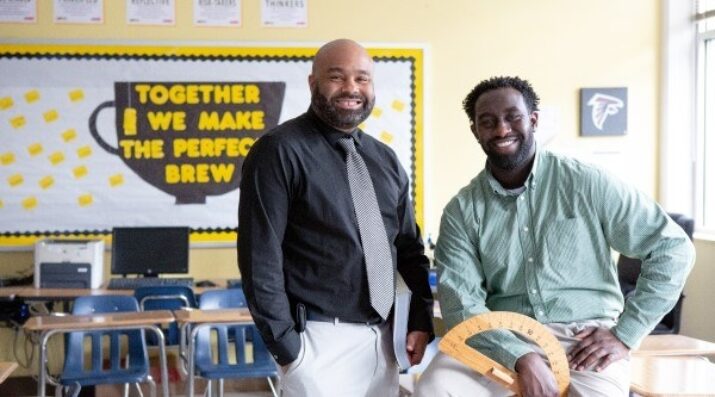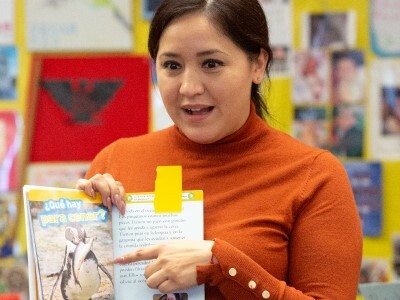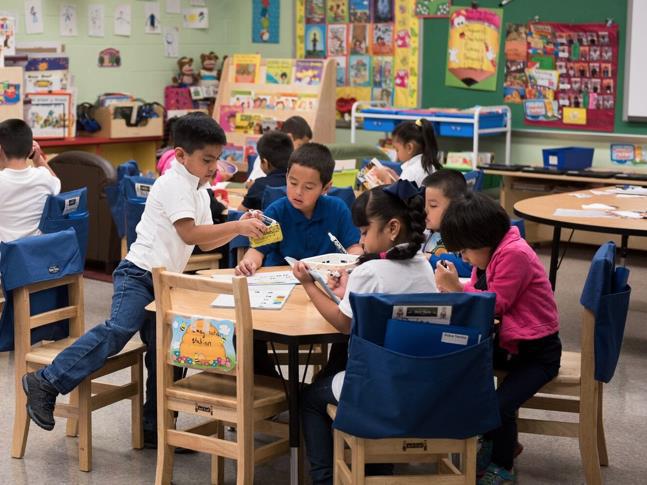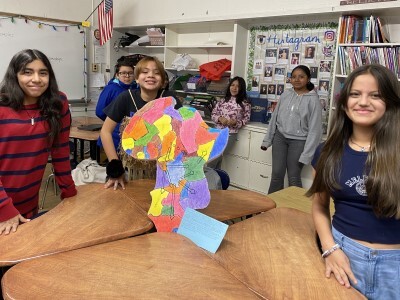Teachers Need to Be 21st Century Ready Too
Topics

Educators are the lead learners in schools. If they are to enable powerful, authentic, deep learning among their students, they need to live that kind of learning and professional culture themselves. When everyone is part of that experiential through-line, that’s when next generation learning thrives.
How can students learn essential skills when these skills were not taught or valued when their teachers were in school? Find out why teachers need to exercise and model the skills that their students need to be successful.
They're not ready because we're not ready.
Teachers from pre-k to 12th grade dedicate themselves to preparing students for life after school. But what does that mean? What skills do today's graduates need to be successful? A quick internet search will render essential skills at the top of the list of traits employers seek. Today’s graduates are expected to work together, to be innovative, to share ideas for the benefit of others, and to think flexibly and swiftly pivot if something is not working. Gone are the days when the quick retrieval of facts or the mindless following of a supervisor's directions are valued. What is our role as teachers in preparing students for the world they are entering? Do we exercise and model the skills they need to be successful?
Many teachers struggle.
Educators today are unhappy and leaving in record numbers, resulting in a significant teacher shortage. Lack of essential skills and this shortage are related. Across the country, teachers report being unhappy with working conditions. In recent personal conversations, educators shared with me feelings of disempowerment, insecurity, lack of trust, confusion about expectations, and unease in relationships with students' families and their communities. Teaching through essential skills provides an opportunity to improve working conditions and student outcomes, but many educators were themselves students in a system that did not value essential skills. These teachers moved from schools, to colleges, and back to schools, often emulating their own educational experiences. Teachers hear about essential skills and being ready for the 21st century, but without first-hand understanding of what this means, how can they possibly be expected to prepare students properly?
So, what do we do when someone does not know something? We guide them. We teach them. We provide opportunities. In order for our students to truly become 21st-century ready, their teachers must possess and professionally exercise essential skills. To empower teachers, we must first focus on building trust. Educators need support and coaching to change their understanding of this profession. We need help to see ourselves as interdependent teammates and not lone islands. We need to learn how to speak openly and honestly about our successes and failures in the classroom, without fear of judgment. We need to see our students' achievement and struggles through a group-minded lens. These are not my students and those are not your students; they are our students and when we work together, they benefit. In short, we need to feel safe sharing our skills and knowledge, as well as our questions and wonderings, in communities and cultures built on an expectation of risk-taking, learning, and collaborating for all.
In their deep exploration of schools that successfully weathered the COVID-19 pandemic, NGLC and their partners in the What Made Them So Prepared? project uncovered several common key elements across the participating schools, including a “forward-leaning orientation” which focused on 21st-century skills and “tuning both the (student) learning model and the (emphasis added) adult/professional environment to that vision of success by enabling and distributing agency.” Another common trait across these 70 schools was a healthy culture. “The strength of relationships, shared values, and mission-driven beliefs… helped them navigate the daily challenges and opportunities they faced.” These findings not only emphasize the importance of trust among teachers, but shine a light on the necessity of learning environments built on systemic trust and relationships at all levels.
With 21st-century skills leading the way, teachers will experience increased job satisfaction as they begin to truly collaborate with a focus on students. Deep discussions can be had around shared definitions of success. Data can lead conversations about practices and experiences that are resulting in student achievement or hampering growth. Teachers can feel empowered to exercise professional creativity as they work with new strategies to support all learners. Teacher agency and self-direction will lead to successes and growth opportunities from which educators can learn and build.
Learning essential skills is not just for students.
Educators also need to learn how to professionally use these skills that were not taught or valued when they were in school. Without teachers leading the way, bolstered by systems that value their voices, we will continue to see adults who are unhappy in the profession and, most importantly, our students will never have the opportunity to fully develop their own essential skills.
Photo at top by Allison Shelley for EDUimages, CC BY-NC 4.0.




